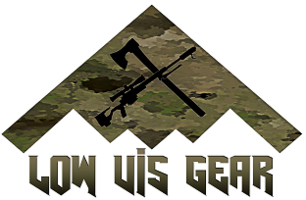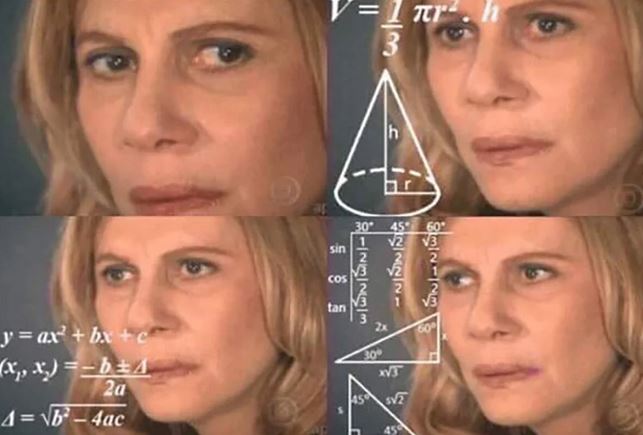The first and most important part of being a good student is deciding that you are interested in not just the journey, but eventually learning enough to be able to teach these new skills to someone else. If you can pass on a skill to someone else, you should know enough to at least employ it properly (generally).
If you already lack motivation at the very beginning, quickly you will likely start cutting corners, skip over unknowingly vital information and start looking for shortcuts.
The four stages of learning:
1. Subconscious incompetence
2. Conscious incompetence
3. Conscious competence
4. Subconscious competence.
It takes almost no time to become aware that you are not good and know nothing to very little about a new skill... It takes time, dedication and GOOD practice with accountability to begin pushing skills and knowledge over to your conscious competence area and then finally, eventually things will begin sliding into the subconscious competence skill set area allowing you to perform a task without much additional effort.
EXAMPLE: Driving manual transmission car.
Initially as a child you had no idea about what was going on, what it all meant... Eventually you were coached through by a parent, instructor or friend on what each component meant and how it performed.
Eventually, you began tying these skills together but had to pay a lot of conscious attention to your feet, hands, listening to the engine, feeling the vehicle, watching the tacho etc... But you COULD drive.
Finally, after months / years / many hours of driving, it became second nature, you were driving without thinking about your feet, you were changing gears without really paying any attention other than making sure you were going in the right direction.... You had committed the skill of driving a manual transmission car over into your subconscious.

(Glorious meme by Collin Fossen)
Now what?
Your training, dry fire, movement, equipment setup, load data etc... Should be used in a way that they reflect whatever makes up YOUR reality (hunting / work / defence / competition / etc.). Your training should initially be slow, deliberate, analytical and compartmentalised, breaking simple skills down into a layered approach.
For hunters, the skill of removing a slung rifle from your shoulder safely, taking up a sight picture, running the bolt, ensuring the safety is on or off, DOPE / parallax / windage etc. are relevant to the situation and releasing a shot under control. These are all critically important micro skills that when strung together, should hopefully amount to a successful shot being released and your target going down.
You could work through this basic scenario a handful of times, beginning slowly at first, filming it on your phone for later critiquing, working through the intricacies of this seemingly simple yet also fairly complex task.
Simply ripping the rifle off your shoulder, throwing the scope up into your eye and cracking a round off is not the objective here. We are looking for smooth movement, with purpose. We are looking for control, deliberate action, safety and accountability.
Review the footage often, more so to identify where you could save time by increasing efficiency of movement or altering your equipment setup.
Another example would be removing your pack, laying prone behind it, taking a sight picture, running the bolt and releasing a shot in a controlled, calm, composed manner.
Once you have developed a rhythm and are feeling comfortable, you can begin working on timings, going through the process again and then adding other skills before or after such as moving into a position etc.
The negative power of your EGO:
This is an important time to discuss the effects of a poor attitude towards learning. Everyone has an attitude, some people are an absolute expert in their own mind and will tell you all about it... Some people are the pinnacle, Jedi master, steak eating, Viking, Gunfighters... Right up until they are put under pressure, observed / assessed or critiqued externally... The whole thing can come crashing down.
In order to be a good student and effective learner, you have to drop your guard, understand that you are allowed to struggle, you are allowed to suck... For a while.

You will observe a small percentage of students roll in, carry on, macho this, expert that... As soon as they are under any form of pressure or are struggling to pick up a skill, they often begin to close down and either get snappy or embarrassed - in an attempt to deflect attention away from themselves as an act of self preservation while they figure out what to do next.
These people roll in at the absolute 'peak of mount stupid', quickly realising that things aren't going so well, where they are abruptly thrown into the 'valley of despair' at which point they have a fairly simple choice:
1) The wise decision is to accept that YES, this IS a new skill and YES, you are allowed to struggle as a student in a training environment. You must open your ears / mind / eyes, ask questions, fight to understand, seek out this new information, take notes and turn it into a meaningful session.
OR
2) The poor decision is to blame others, look for an 'out' and get snappy, it's 'someone else's fault'... The trainer, the venue, the skills are flawed etc... There are always a lot of excuses ready to go. This will only lead to what may feel like a quick 'win' but likely end in a long trough of regret and denial down the track (depending on how much they cared initially). Either way, it was a massive waste of time and likely affected other students in the process.
Once you have made the sensible and positive choice that you DO want to learn, DO want to improve and DO want to get through these new challenges, you will quickly begin climbing the 'slope of enlightenment', pushing new boundaries, getting comfortable flexing some fancy new skills and figuring things out...
Post course, as you continue to grow and develop these skills, if done correctly and consistently, you will begin to push them into your subconscious competence and with a bit of continuation training, you'll be sitting nicely up on the 'plateau of sustainability'. Up here, your skills should be pretty much 'on tap', ready to go, from a cold start, at a moments notice, regardless of season, weather or terrain. (Ideally anyway!) but you cannot get complacent as things will quickly slip away if not maintained, like chin-ups!
Be creative...
The world is your oyster, your limits are in a lot of ways set by your imagination (and local state & federal laws of course!). Write down a short list of skills you KNOW are lacking, begin working through them first... By training these initially, you will likely identify other areas that could be tweaked slightly to make them more efficient and you're off!
These principals are extremely watered down, there is a lot to the psychology of learning, the importance of 'adult learning' techniques, communication methods, equipment and venue use etc...
Professional training is of course layered, tiered and complexity based off the individual & group skills & abilities, controlled by overall safety, instructor / student ratios, learning objectives, training outcomes, cost etc.
Final point:
EVERYTHING IS YOUR FAULT... NOTHING HAPPENS WITHOUT YOU.
YOU WILL NOT IMPROVE IF YOU DO NOT PUT IN TIME, EFFORT OR REMAIN ACCOUNTABLE FOR YOUR OWN DEVELOPMENT.
Get after it, even 10 minutes of focused training (EVEN SIMPLY VISUALIZING A SKILL) every few days is far better than doing nothing at all.
If you are seeking to further develop your skills in the world of precision rifle shooting, there are many reputable training providers that are more than willing to set you on the path of enlightenment... Do your research about the instructors and courses beforehand, make sure you are comfortable with what they are teaching and that it fits in with your goals.
With GOOD training, you could save THOUSANDS of dollars of wasted ammo / fuel / equipment etc. and thousands of hours of messing around doing strange, random things behind a rifle!
J

